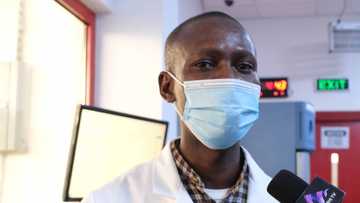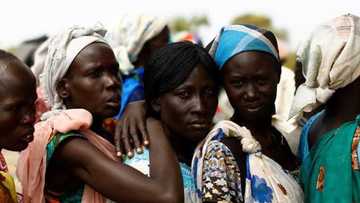Analysis: Improving Medical Emergencies in Nigeria With the Aid of Technology
- Health experts have continued to advocate for the review of Nigeria's efforts at improving medical emergencies in the country
- As Nigeria continues to identify options for improvement, a new initiative to ensure the medical needs of rural dwellers are met on time is on the way
- Authorities in Cross River and Kaduna states are already preparing to launch the initiative which is expected to impact positively on the health sector in their respective domains
PAY ATTENTION: Join Legit.ng Telegram channel! Never miss important updates!
FCT, Abuja - Although a lot of progress has been made in emergency medical service delivery in Nigeria through private efforts and government initiatives, the country still has no clear-cut policy direction on coordinating and tackling medical emergencies.
All that is about to change as some state governments in the country have already identified an organisation that can bring the next phase of the healthcare supply chain to Nigeria and effectively ensures a seamless system of emergency medical care using technology.
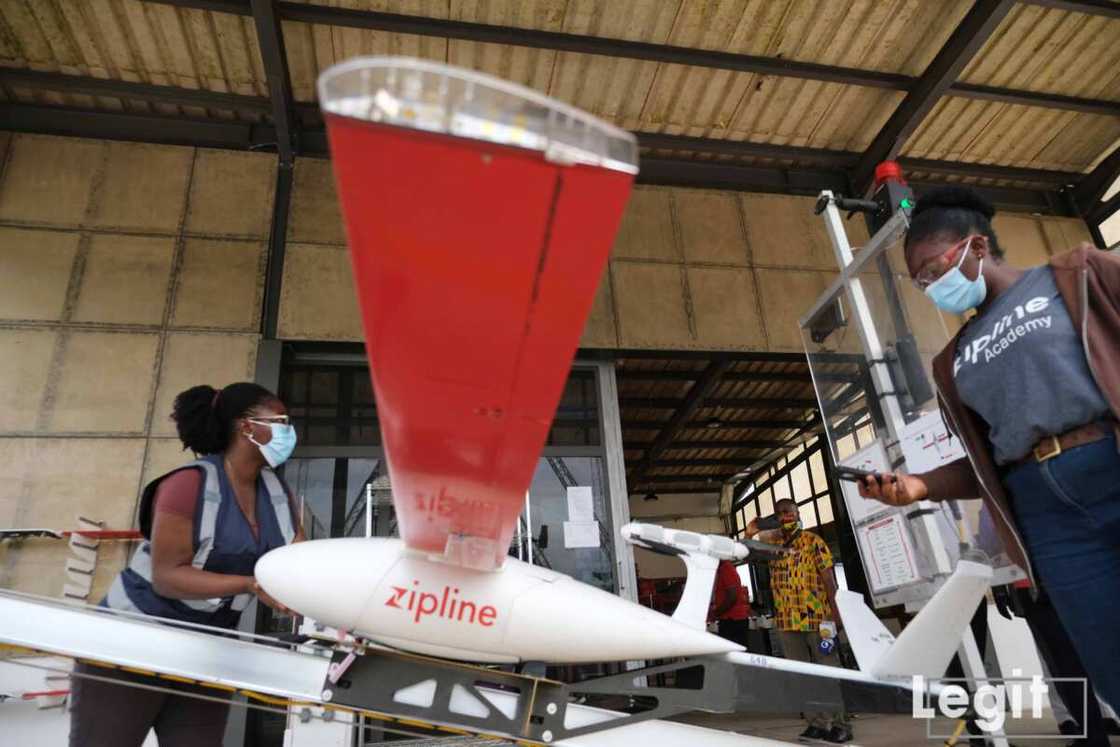
Source: Original
PAY ATTENTION: Install our latest app for Android, read best news on Nigeria’s #1 news app
Driving continuous improvement across the Nigerian health system
Ensuring that health care reaches everyone in Nigeria to prevent avoidable deaths and save lives will be a dream come true.
In neighbouring Ghana, locals in the hinterlands are receiving instant access to vital medical supplies through Zipline, a medical product delivery company providing an end-to-end solution using drones to reach such persons.
The full fleet of drones and supporting technology serves up to 700 delivery points in a 20,100 km2 service area and carries 95% of typical outpatient prescription shipments and 75% of typical medical-surgical products.
They also deliver to hospital campuses, outpatient practices, and patient's homes while creating 25-35 highly skilled jobs for local talent in each of their facilities.
Dr. Komlla Frank Wunu, the deputy chief physician of Apediwa Health Centre in the Eastern Region of Ghana shares his experience with Legit.ng.
His words:
“Previously, we procure our drugs from the regional medical stores. That means, we have to request and get to the region, and sometimes, we operate a system in which drugs run out.
“But, before you get there, you have to travel for almost one hour. Now that Zipline is in place when we run out of drugs, we make a request and they respond. Within 5 to 20 minutes, our quest lands.
“Usually, the drugs that we do request is IV fluid, infusions, vaccines, and other tablets which is not heavyweight that will alter the supply.”
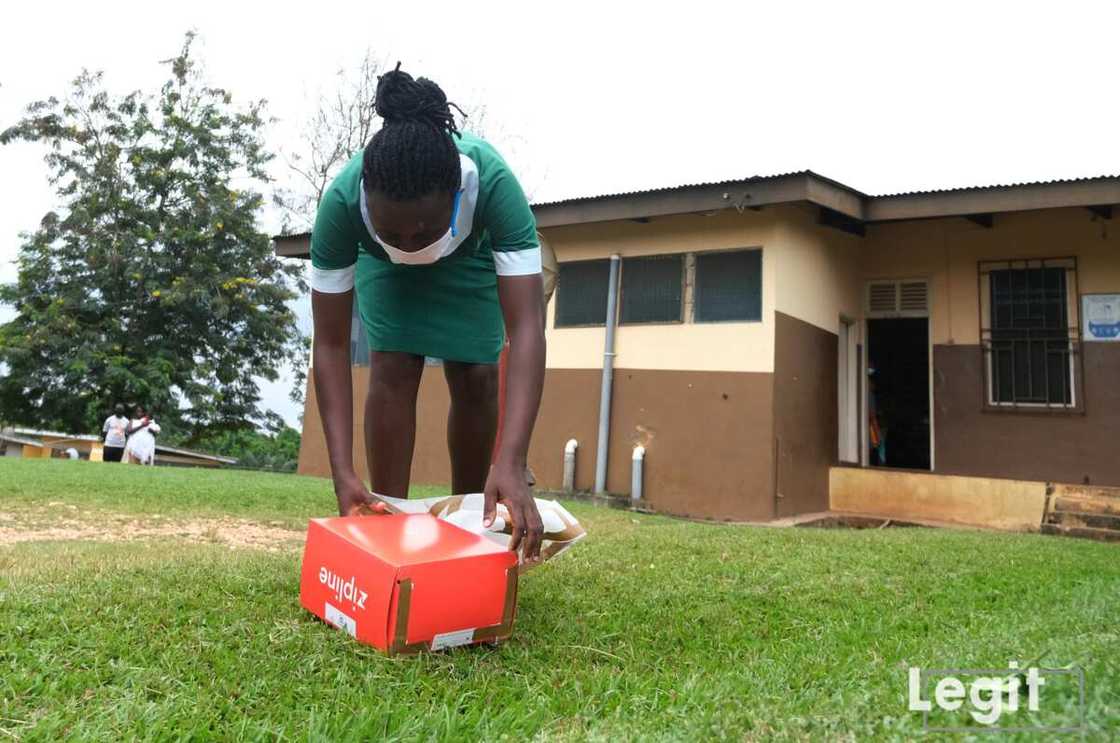
Source: Original
How Nigeria can benefit from such technological intervention
Medical emergencies are a daily occurrence in medical practice and Nigeria has had its large share of such occurrences.
In September 2020, a story went viral in Nigeria detailing how desperate people in remote areas are for quality health care.
Tired of waiting for the government to provide a basic health facility for their community, poor women in Baddo community in Taura local government area of Jigawa state, northwest Nigeria, taxed themselves to buy a vehicle to use as an ambulance.
The women clustered into 21 groups of 20 members each and contributed N1,000 each for two months to buy a vehicle for taking any of them in labour to the nearest health facility 31 kilometres away from their community.
They made the contributions from the N5,000 they receive monthly from the federal government under the Conditional Cash Transfer scheme.
This trend can be halted if state governments in Nigeria reach out to Zipline and utilise its services to provide an economically viable distribution system for hard-to-reach and underserved communities.
Enter Cross River and Kaduna states
Fortunately, the Cross River and Kaduna state governments have already signed agreements with Zipline.
In February 2021, the Kaduna state government and Zipline announced a partnership that will witness the use of a logistics network of autonomous delivery drones to help transform access and availability of routine and emergency medicine for millions of people in the state.
The service will operate 24 hours a day, seven days a week, from three distribution centers equipped with 30 drones and deliver to more than 1,000 health facilities serving millions of people across Kaduna state.
Together, all three distribution centers will be capable of microtargeting the delivery of more than six tons of medical products each week over more than 60,000 square kilometers.
Announcing the new initiative, Governor Nasir El-Rufai said:
“Kaduna state is focused on delivering one of the best public healthcare systems in Nigeria.
“The agreement with Zipline builds on and adds value to our initiatives to strengthen the capacity of the Kaduna state health system.
“This new emergency drone delivery service is a great solution to deliver vaccines, blood, and other lifesaving products instantly when time is of the essence. It will help ensure that millions of people in Kaduna state will always get the care they need.”
Similarly, in May 2021, Cross River state came on board, and an excited Governor Benedict Ayade said:
“The focus of this partnership is to ensure that all barriers hindering the successful delivery of medical commodities to our people is removed.
“This is one of the many forward-thinking interventions we are implementing to consolidate the gains we have made within the health care system.”
On her part, the commissioner for health in the state, Dr. Betta Edu said:
“We anticipate that this revolutionary technology will improve access and even distribution of medical commodities to remote and hard-to-reach areas, which has only become more urgent with the COVID-19 pandemic.”
Preparing for the future
Over 100 drone flight operators are already undergoing training in Ghana ahead of the full operations of drone facilities in the two states.
The trainees are currently undergoing training at Zipline Training Academy in Ghana, the centre for such activities for the African Sub-region.
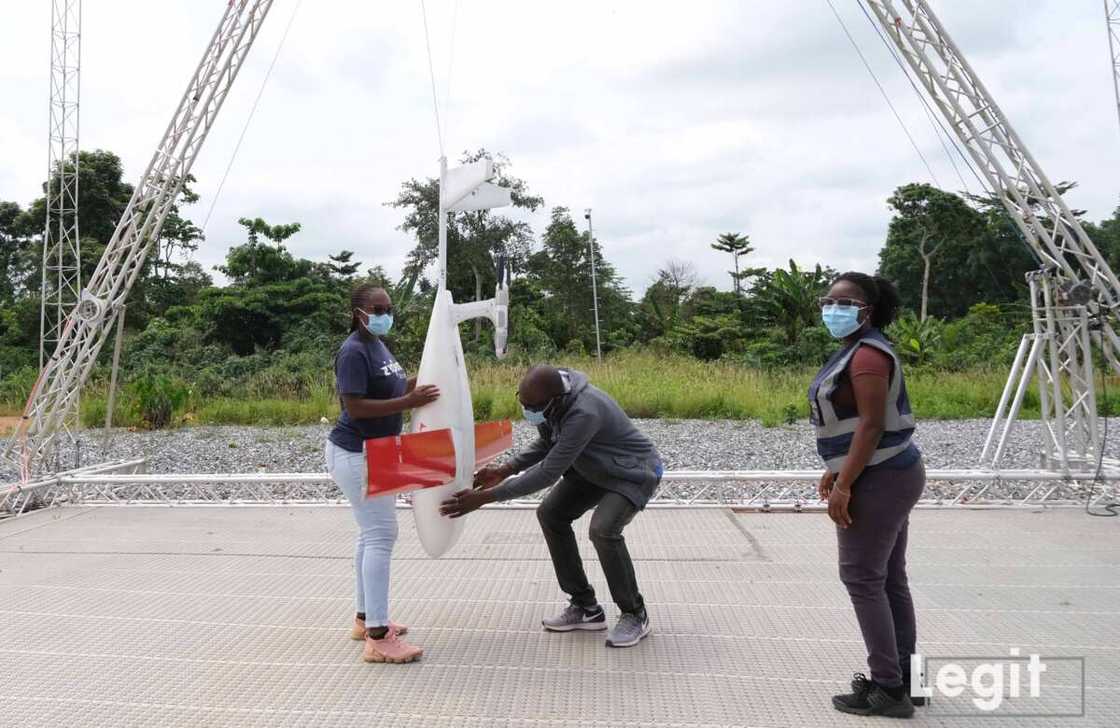
Source: Original
In preparation for an expansion of this initiative, Mr. Daniel Marfo, the Senior Vice President of Zipline revealed that national-scale drone delivery of medical services to health facilities to rural communities in Kaduna state will start by September 2021.
He said that Zipline was also in talks with other states in Nigeria and some Africa countries for an effective drone delivery system of medical equipment to health facilities to rural communities.
According to him, Zipline which was duly registered with the Nigeria Civil Aviation Authority and Ministry of Health maintained a high degree of safety culture.
His words:
“The new solution is to increase access and reduce medical waste, key stock of blood products, vaccines, and life-saving medications.
“All these will be stored at Zipline’s distribution centers for just-in-time delivery.
“Health workers will place orders by text message or call, and promptly receive their deliveries in 30 minutes on average.
“The drones both take off from and land at Zipline’s distribution centers, requiring no additional infrastructure or manpower at the clinics they serve.
“The drones fly autonomously and can carry 1.8kg of cargo, cruising at 110km an hour, and have a round trip range of 160km, even in high-speed winds and rain.’’
Speaking on one of the success stories recorded in his medical facility, Dr. Wunu said:
“A woman was having Eclampsia (a serious condition where high blood pressure results in seizures during childbirth) and we needed drugs to stabilize her before we refer her to a bigger hospital.
“So, we ordered a drug and within five minutes, it was here and we administered the drug before we rushed her to the nearest hospital which is our referring point.’’
With Zipline launching in two states soon, doctors in Cross River and Kaduna states will be able to share similar testimonies in the nearest future.
Source: Legit.ng



